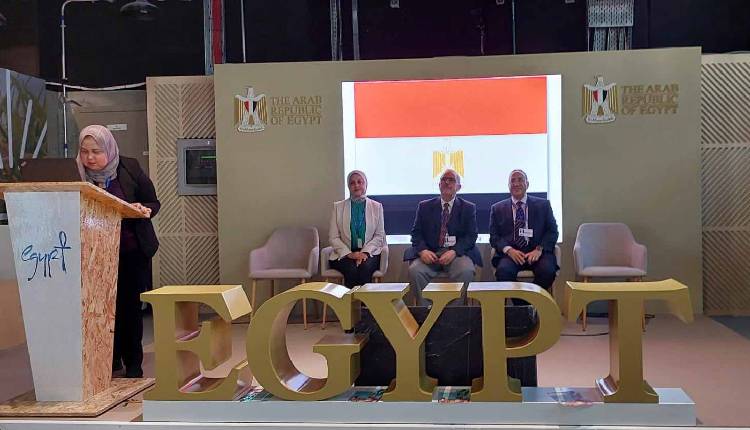The Egyptian pavilion at COP28 held a session on Sunday called “Food Security in the Face of Climate Change,” which addressed issues related to agriculture, water, and food.
The session was the final event of the thematic days observed throughout the conference, taking place in Dubai, United Arab Emirates (UAE).
Egyptian experts discussed how to ensure food security in a changing climate. They covered topics such as how climate change affects food systems and the economy and how plant diversity helps crops adapt to climate stress.
In addition to that they, tackled how nutrition is important in a climate crisis and how underused plants can be new food options.
Abdelfattah Badr, Professor of Genetics and Biodiversity in the Botany and Microbiology Department, Helwan University, highlighted Egypt’s involvement in the COP28’s climate talks. He urged for practical solutions and a definite plan to cope with the effects of climate change.
Badr stated to Emirates News Agency (WAM) that Egypt needs practical ways to grow plants that can adapt to climate change, as it depends a lot on food imports.
He also stressed that using recovered lands to increase farming areas for new and resilient crops is vital. This can be done through joint research by the environment and agriculture ministries.
Mahmoud Abdelaziz Touny, an economics professor at Helwan University’s Faculty of Commerce and Business Administration, mentioned the impact of climate change on food output.
Touny said climate change has caused sea levels to rise and reduced Egypt’s main crops (e.g., wheat, rice, and maize) by 15 percent, affecting food prices worldwide.
For his side, Amira Darwish, a food science expert from Borg Al Arab University, urged for holistic strategies to ensure food security.
She suggested innovative ideas for “future foods,” such as using eco-friendly protein sources instead of animal products and saving land and water resources.


